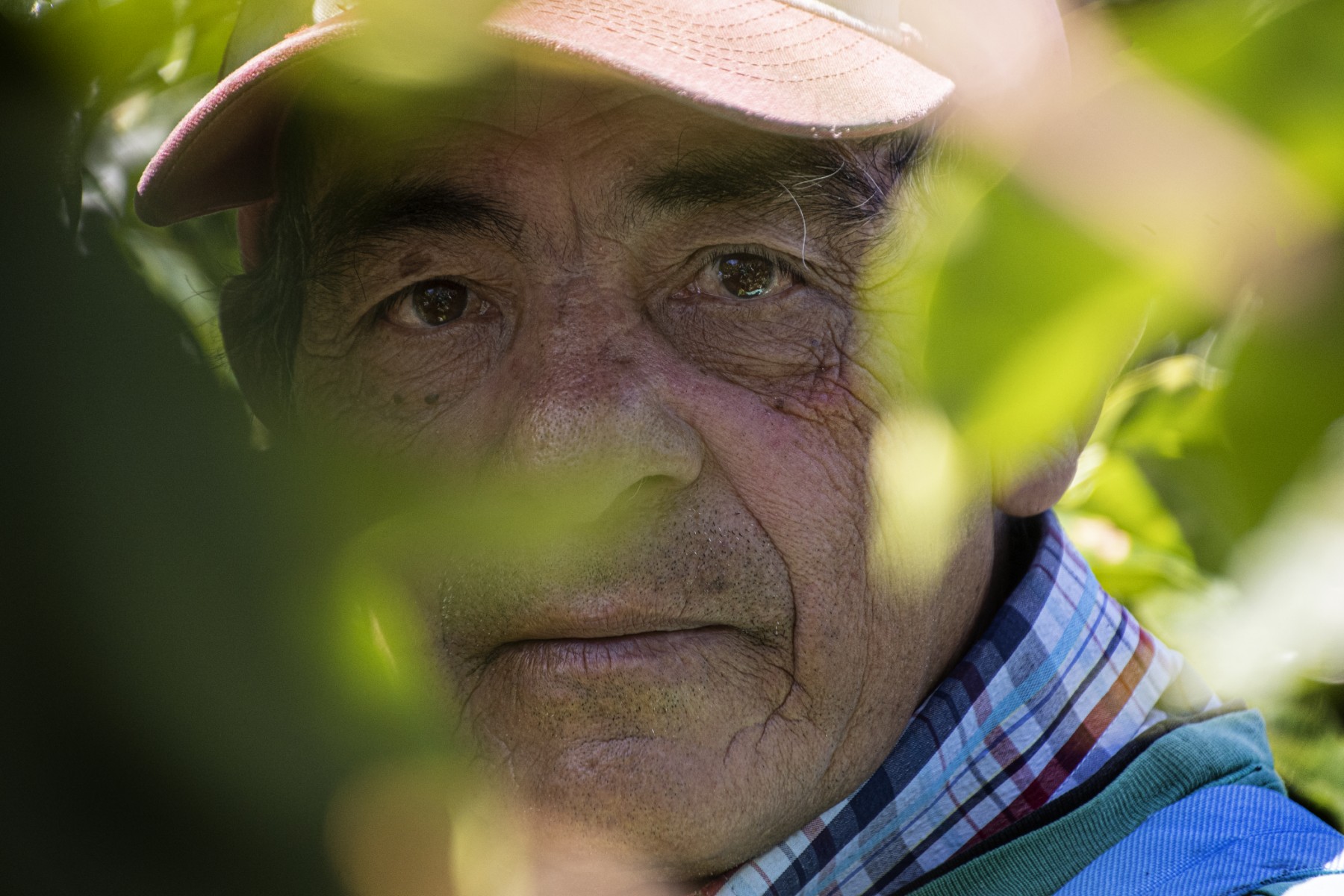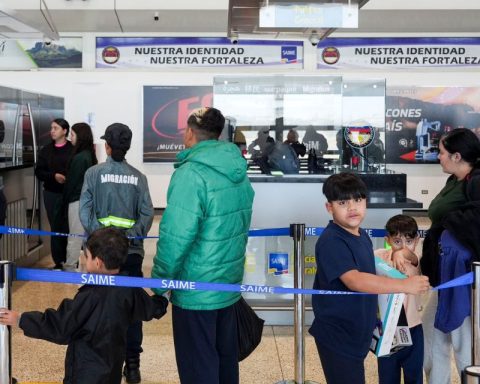The El Encanto farm, nestled on a mountain in central Honduras, works with half the coffee pickers it needs due to the migration of thousands of people to the United States.
The drama is repeated throughout Central America, where, faced with the shortage of people for the harvest, coffee growers see the fruits and their income fall to the ground.
In Siguatepeque, 90 km north of Tegucigalpa, the owner of El Encanto, Selvin Márquez, planted the five hectares of the farm. It has 20 collectors instead of 40 last year.
“Many of our people who have dedicated themselves to collecting coffee go to the United States, to other countries, due to lack of opportunities,” laments the 34-year-old man.
The “cutters” wear a plastic container tied to their waists. The lush foliage mitigates the scorching rays of the sun.
Related news: Shortage of labor on coffee and tobacco farms in Estelí
Among them is José Samuel Hernández, 34 years old. He works with his wife, Esly Mejía, 24; his sister-in-law Gleny, 20, and the couple’s daughter, Alexa, two years old.
Every hand counts, even Alexa’s little ones, who, hugging a dusty teddy bear, sometimes plays and helps others by cutting grains from the lowest branches.
The family cut 400 pounds in eight hours and received 10 cents per pound.
“The basic food basket is very high, it is exceeding 14,000 lempiras ($567 a month),” so the income is “insufficient,” José Samuel Hernández told AFP. A security guard, he took advantage of the day off from his other job – where he earns $429 a month – to join his family on the farm.
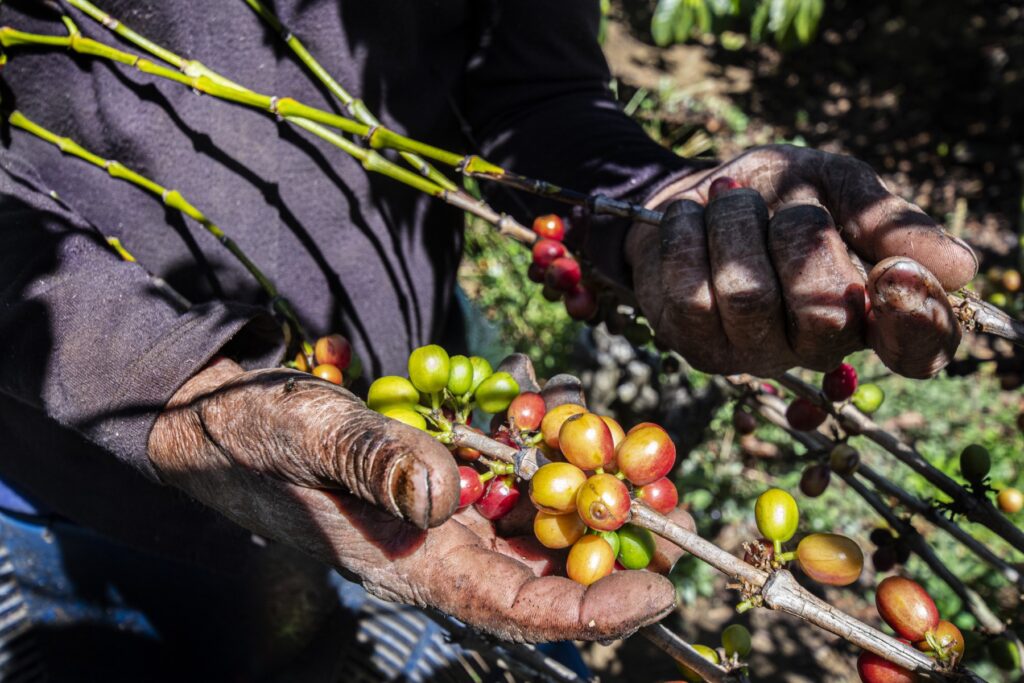
– Double effect –
Honduran authorities estimate that 1,000 of its 9.5 million inhabitants leave for the United States every day to escape poverty and criminal violence.
The migration of Hondurans “doubly affects” production and harvesting, says Oscar Márquez, 36, Selvin’s brother.
“Those who leave stop cutting our coffee and those who stay” also, because they live on remittances from abroad, he maintains.
Related news: Low temperatures in Nicaragua improve sales of thermal clothing, coffee and citrus
In Honduras, the seventh world producer according to sources in the sector, there are 250,000 hectares of coffee distributed among more than 100,000 producers.
Its cultivation generates a million jobs and about 38% of agricultural GDP, according to the Honduran Coffee Institute.
In the 2021-2022 season, the country exported 1.4 billion dollars.
– Less Nicaraguans –
In the Central Valley of Costa Rica, in the town of Birrí, 37 km north of San José, the Hersaca Tres Marías farm suffers the same fate: a drastic reduction in Nicaraguan workers –the bulk of its workforce– who left To united states.
Many were temporary workers, who returned to Nicaragua after the harvest. But after the 2018 protests harshly repressed by the government of Daniel Ortega, the exodus worsened.
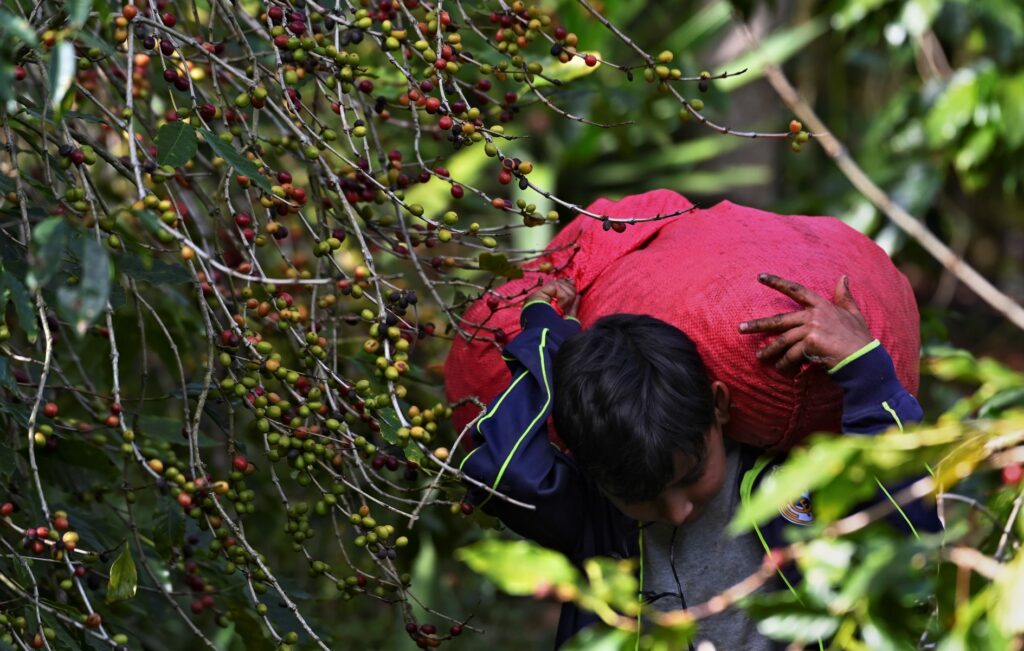
Managua does not disclose figures for emigrants, but more than 164,000 Nicaraguans were intercepted by US authorities when entering illegally in fiscal year 2022, three times more than the previous period.
In the two hectares of Hersaca Tres Marías, the hands of the Nicaraguan Nicolás Torres, tanned and blackened at the age of 70, endlessly caress the bushes full of grains.
Related news: Jinotega farms, with difficulties due to lack of labor to cut coffee
“I have grown inside the coffee,” he says without stopping to collect. “This has been one of my good jobs that I have ever done.”
In Nicaragua “there is a social and political decomposition,” says Torres. “The government sometimes does not allow all Nicaraguans to work freely, (there is) a lot of pressure in the country and that makes us emigrate.”
In Costa Rica there are almost 94,000 hectares of coffee plantations, which employ some 25,000 pickers, mostly Nicaraguan but also Panamanian and Costa Rican, according to Bilbia González, deputy executive director of that country’s Coffee Institute.
It indicates that “the migrant harvester labor (…), Nicaraguan, is extremely important” for Costa Rica, which in the 2021-2022 season exported 337.8 million dollars in coffee.
– “They have gone to the United States” –
“Nicaraguan people (there are) very few, they have left for the United States, very few arrive this year. Last year I had 70 laborers and this year I have had 50”, explains the person in charge of Hersaca Tres Marías, Geovanny Montero.
Due to the reduction in labor and the rains that ripened the fruit quickly, Montero foresees a loss of 5% of his harvest.
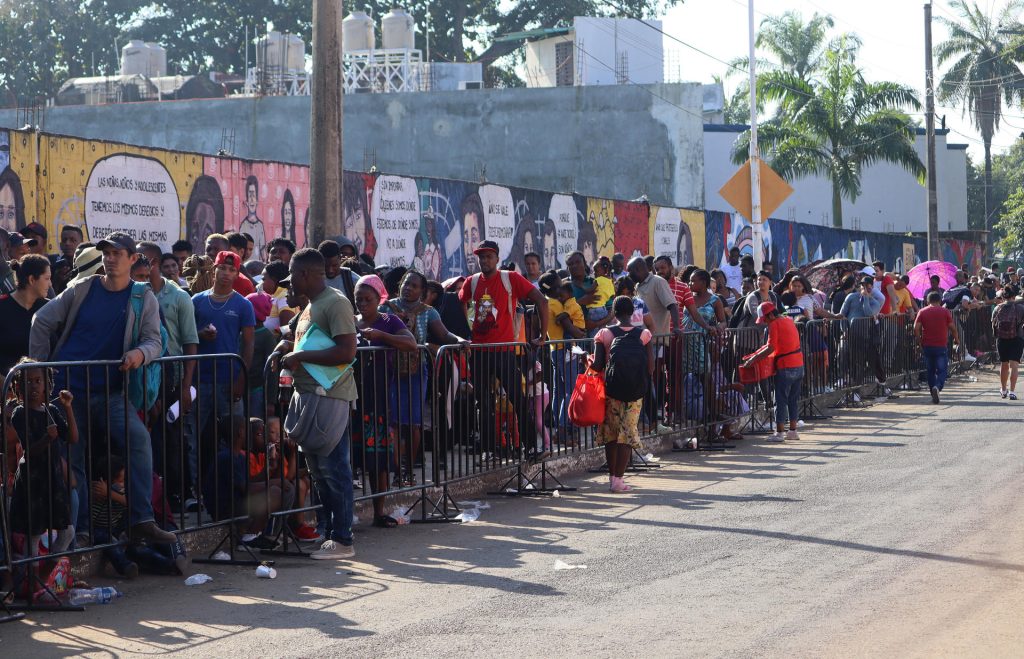
“That’s a lot of money,” he laments as he shows the fallen and lost grains, clarifying that until the harvest is over they cannot quantify those losses.
Fernando Porras, manager of Coopelibertad, the cooperative that buys the farm’s produce, comments that the harvest is finishing “with the few people” they still have. The payment is about 15 cents per kilo.
This year, the harvest that used to be done in two days takes a week.
“It has cost us a lot,” says Porras. “We have to run with the coffee,” he adds resignedly.
